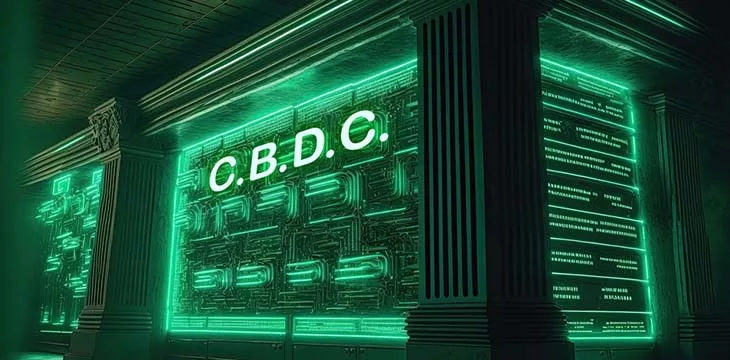
|
Getting your Trinity Audio player ready... |
The Federal Reserve has stated that its FedNow Service is not related to a central bank digital currency (CBDC), amid a growing public rejection of a state-backed digital currency in the United States.
The Federal Reserve made the announcement via a statement on its official website where it tagged the FedNow Service as “ready.” The service went live on July 20, offering instant payment for transfers between financial institutions.
#FedFAQ: Is the FedNow Service replacing cash? Is it a central bank digital currency?
Learn more about the #FedNow Service:https://t.co/ACBjfEhR4A https://t.co/IXF8dyy46S pic.twitter.com/7CUaYZYyM9
— Federal Reserve (@federalreserve) July 19, 2023
“The FedNow Service is not related to a digital currency,” the Federal Reserve noted. “The FedNow Service is neither a form of currency nor a step toward eliminating any form of payment, including cash.”
The institution added that it has yet to decide on rolling out CBDCs, stating that it will require congressional approval to launch the offering in the U.S. Since the announcement, a cross-section of the public has likened the FedNow Service to a CBDC, given its array of features.
The service promises uninterrupted round-the-clock real-time transfers and liquidity management transfer capability. Information obtained from the statement indicates a private-sector instant payment service powered by a joint account at the Reserve Bank.
Other features of the service include the option for participants to join a receive-only status, request for payment capability, and fraud detection tools. In a strong show of readiness, the Federal Reserve announced that it had onboarded 41 financial institutions and 15 service providers, expecting instant success as its previous offerings—Fedwire and FedACH.
Investors like Balaji Srinivasan poked holes in the Federal Reserve’s claims in March, saying that while there is a technical distinction between a CBDC and the FedNow, the lines are blurred “from a civil liberties standpoint.”
“I think of FedNow as a little bit like a virus that has evolved to evade recognition by changing its sequence without really changing its function,” Srinivasan said. “People are immunized against the term ‘central bank digital currency’, but not all forms of increased ‘central bank digital control’, and FedNow is certainly the latter.”
He argues that the new service is highly centralized, requiring all payments to pass through a fed-controlled server. He argues that the feature of a government-to-consumer system will give the government increased control over individuals’ bank accounts.
CBDCs a tool for heightened government control?
While over 100 countries are cantering toward the launch of their CBDCs, developments in the U.S. have been brought to a grinding halt. States are taking preemptive steps to ban the application of a digital dollar on their turf, describing them as a government surveillance tool.
Florida moved to pass a bill banning the use of a proposed digital dollar, with North Carolina adopting the same stance. In June, U.S. credit unions penned a letter supporting an anti-CBDC bill on the grounds of an absence of clear legislation to support their development.
“The Biden administration’s efforts to inject a Centralized Bank Digital Currency is about surveillance and control. Today’s announcement will protect Florida consumers and businesses from the reckless adoption of a ‘centralized digital dollar,’ which will stifle innovation and promote government-sanctioned surveillance,” Florida State Governor Ron DeSantis said.
To learn more about central bank digital currencies and some of the design decisions that need to be considered when creating and launching it, read nChain’s CBDC playbook.
Watch: Blockchain provides perfect foundation for CBDC
Recommended for you
Lorem ipsum odor amet, consectetuer adipiscing elit. Elit torquent maximus natoque viverra cursus maximus felis. Auctor commodo aliquet himenaeos fermentum
Lorem ipsum odor amet, consectetuer adipiscing elit. Accumsan mi at at semper libero pretium justo. Dictum parturient conubia turpis interdum

 11-22-2024
11-22-2024


